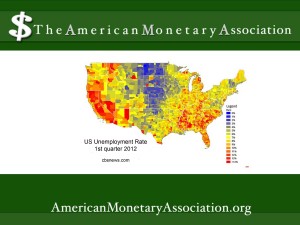Back in 1943, psychologist Abraham Maslow wrote a paper called “A Theory of Human Motivation.” Although this paper represented only one of many efforts at the time to explain human developmental psychology, the theory Maslow put forth in this paper has eclipsed all others, becoming well known even outside the scientific community as “Maslow’s Hierarchy of Needs.”
After a long study of what he called “exemplary people” including Albert Einstein and top achievers from colleges around the world, Maslow established that humans at different stages of development are ruled by different sets of motivations. The most basic of these motivations are Physiological and Safety-based. After these needs are met, people can then progress to meeting emotional needs such as Love and Esteem. Finally, those who’ve satisfactorily met all those lower needs are able to meet the need of Self-Actualization, or reaching one’s full potential to create and give to others and the world.
Now, there have been numerous attacks on Maslow’s ideas. The main objection raised by his peers in the field is that the hierarchy is based on patterns found in highly individualistic societies such as the US and Western Europe, and it may not hold true in societies where the collective, rather than the individual, defines social attitudes. Nevertheless, Maslow’s hierarchy offers some insight into the effects of recent economic crises in the US and the potential for innovation and a return to financial and economic stability.
Simply put, the basic physiological and safety needs of an individual are pre-eminent. These needs include having enough food, a secure shelter, and a sense of both physical and economic safety, such as a ho
me in a safe neighborhood, savings accounts, job security and other safety nets against crisis. But if those requirements are not met, or if a person has to expend every bit of energy just to meet them, they can’t move on to the other stages of emotional and creative development.
In recent years, the US economy has suffered serious downturns, with record levels of unemployment in some areas due to layoffs and business failures. The housing crisis, with its massive rounds of foreclosures, cost many already struggling families their homes. And, according to experts from the Heritage Foundation and other financial and economic institutions, massive lifetime entitlements paid to a growing number of recipients may eventually irretrievably bankrupt the country’s assets. These experts warn that these fiscal challenges threaten the competitiveness of American business and the government as a whole.
How does Maslow’s hierarchy of needs fit into this picture? As a disproportionately large percentage of Americans are forced to direct all their energy and resources toward meeting survival-level needs, not much is left over for efforts beyond that – involvement in solving larger problems, contributing effort and attention to the society’s long term goals, and realizing one’s own unique potential to make a difference.
The result? Stagnation in most areas of economic growth and a loss of the abilities to innovate, think creatively and solve problems needed to keep the United States not only a competitor, but a leader, in the global economy. Failed fiscal policies combined with the shortsightedness of lavish entitlements combine to create a culture preoccupied with Maslow’s basic needs of survival, rather than with developing the potential needed for long-term prosperity. (Top image: Flickr | andyarthur)
The American Monetary Association Team


